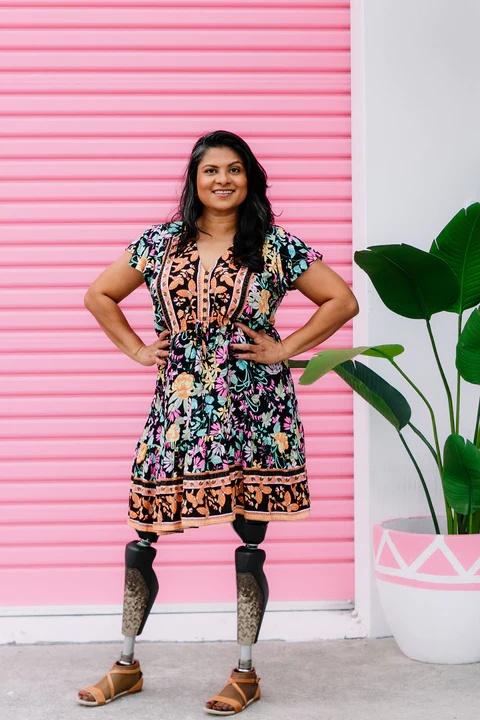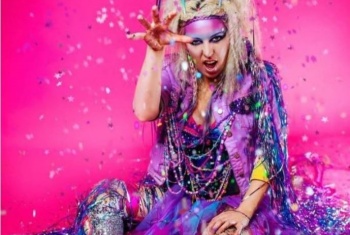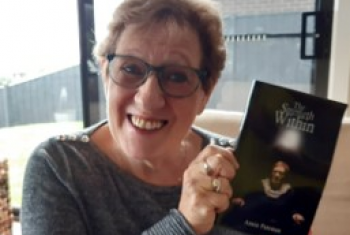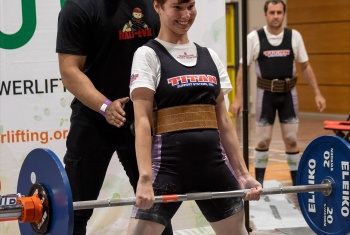Only a few years ago, 33-year-old pharmacist, model, diversity disability advocate, speaker and bilateral amputee, Sara Shams, was struggling to live her best life.
She was falling over 2 or 3 times a week.
Sara’s prosthetic legs didn’t give her the stability she needed to walk safely or confidently.
It made it hard to leave her house, go to work, or be active.
“My previous legs weren’t stable, which led to a lot of falls, it was hard to get around,” says Sara.
Sara’s physical vulnerability also affected her confidence and self-esteem.
For most of her teenage and adult years, she concealed her prosthetic limbs under cosmetic covers, hiding her disability.
“I was always somewhat ashamed of my disability, and I felt unworthy.
"Even though I was successful in terms of my professional and personal life, there was always an aspect of me that felt I was not good enough,” Sara says.
“That was brought on in many ways by society’s expectations and standards of beauty, which, don’t usually include disabilities or prosthetic legs.
"Not having access to reliable assistive technology contributed to my lack of confidence.”
Today, with support from the NDIS and Partner in the Community, Carers Queensland, Sara is feeling confident to safely pursue her goals.
She’s studying a Master of Public Health while advocating for inclusion and diversity in the workforce and media.
Sara now uses more stable, above-knee microprocessor-controlled prostheses, funded through her NDIS plan.
“My quality of life has improved substantially since having access to safer legs.
"I am more confident in carrying out daily tasks,” Sara says.
“Thanks to the NDIS, I can set goals that were out of my reach previously.
"It helps me be an active member of society and with my advocacy work, enables me to empower others.
“These legs have improved my confidence in not only walking, but confidence within myself.
"Combining better AT with letting go of my self-doubts and getting out of my comfort zone has enabled me to achieve goals I never thought possible.”
Sara now embraces her disability – and her legs.
She proudly struts her stuff on runways and steps onto stages to share her personal journey.
On International Women’s Day, she will address the Women’s Network Australia in Brisbane.
“One theme this year is ‘Embracing Equity’ and for me, that is such an important mission,” Sara says.
“Being a woman with disability and a woman of colour, it’s not just about ensuring the same opportunities or resources for everyone.
"It’s about recognising our different circumstances and providing opportunities accordingly to achieve true equity.
“I’ll be sharing my story because it’s important for everyone to be aware, become allies and create a more inclusive society.”
Born in Bangladesh, Sara had a congenital anomaly, which led to her becoming a bilateral above-knee amputee at the age of 6.
“I didn’t see anyone like me – a woman with disability, or a woman of colour – on screens or in the media when I was growing up,” she says.
“I think there have been improvements, but we still have a long way to go to achieve authentic inclusion, and not just tokenism.”
Using her new stable legs, Sara achieved a top goal when she modelled on the catwalk at Designer Q and Brisbane Fashion Week in 2022.
“I am determined to increase representation of people with disability in the media and other industries, and one of my goals was to get on the runway, which was an incredible achievement for me,” Sara says.
Sara is looking forward to sharing her story on International Women’s Day.
“I spent many years wishing away my disability and I hope sharing my experience of self-acceptance will encourage others to learn to embrace themselves a little more,” she says.
“I want others who are feeling overwhelmed with their quirks to know they are not alone.
"I don't want children growing up today thinking it's not okay to have a disability.
“I want them to see others like themselves in adverts and TV shows and know regardless of the type of body they have, or the number of limbs, or how they do things, they are beautiful and capable.”



